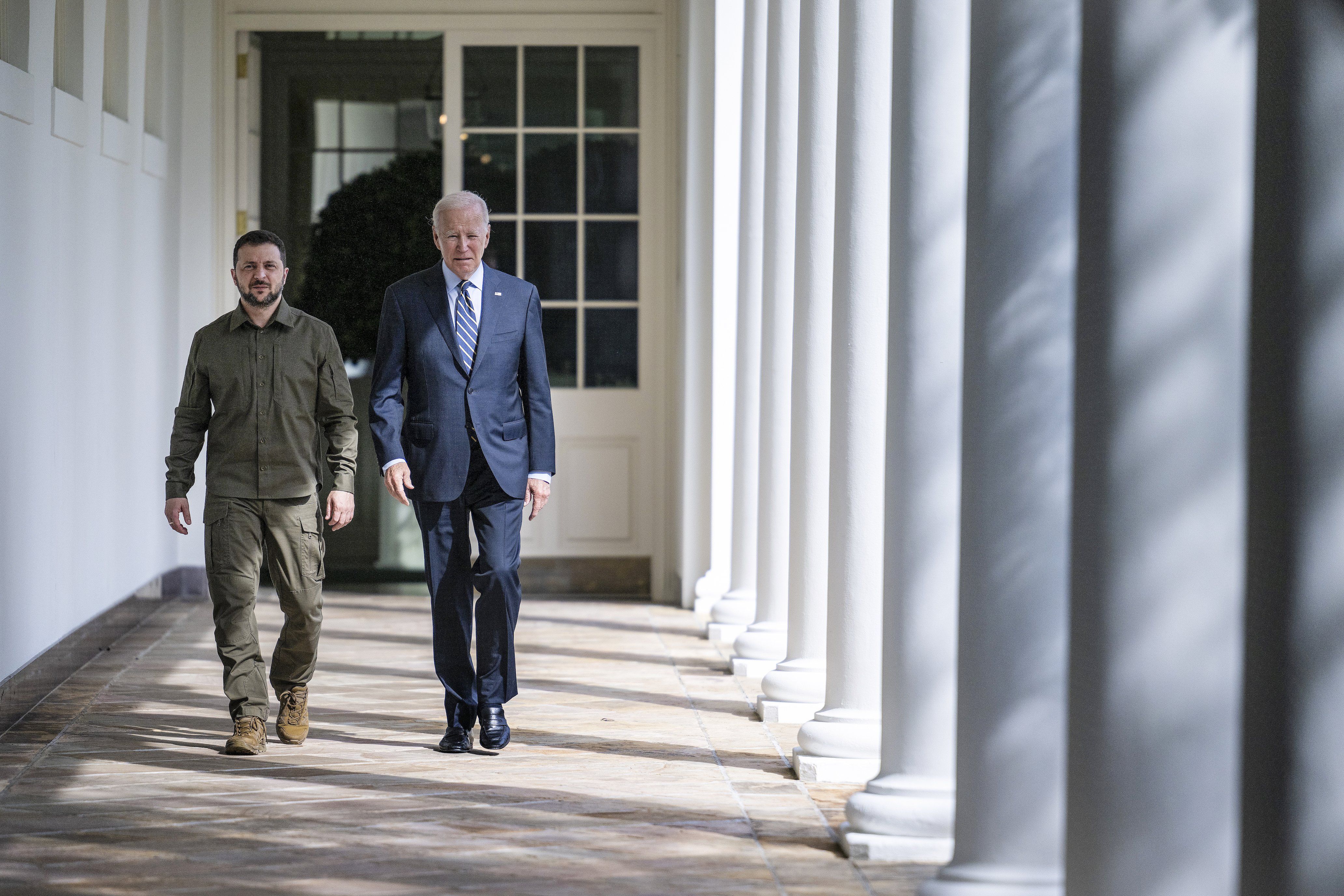After a marathon few days in New York where he attended the UN General Assembly, Ukrainian President Volodymyr Zelensky traveled to Washington on Thursday where he attempted to convince US lawmakers that continuing to fund Ukraine’s war effort is an investment worth making. On Friday, Zelensky traveled to Canada for the first time since the war began.
In Washington, Zelensky met with President Joe Biden at the White House, after which a Biden aide said that the administration would continue to provide Kyiv with military aid, emphasizing new air defenses.
But the White House stopped short of committing to provide Army Tactical Missile Systems, known as ATACMS – ballistic missiles with a range of up to 190 miles that could fit in Ukraine’s existing rocket launchers – that Zelensky has been requesting since last year.
“US reluctance has been driven primarily by concerns that providing ATACMS to the Ukrainians could lead to a jump in US-Russia tensions,” says Eurasia Group’s Russia expert Alex Brideau, noting that this is “either because of the transfer itself, or if Ukraine were to use the missiles on targets on Russian territory.”
The Ukrainian president had his work cut out for him on Capitol Hill, where he was trying to convince lawmakers to green-light $24 billion in military aid requested by the White House. During the visit, Biden confirmed an extra $325 million in military aid would be doled out, but it is a far cry from the total awaiting approval from Congress.
Dealing with growing opposition to additional funds for Ukraine within his caucus, House Speaker Kevin McCarthy refused to let Zelensky address a joint session of Congress, saying he was able to do so last December. While other lawmakers – particular Senate leadership – were much more deferential to Zelensky, one key question kept coming up on the Hill: What is the plan for victory?
